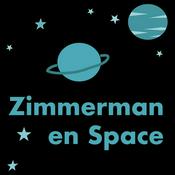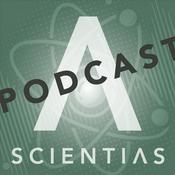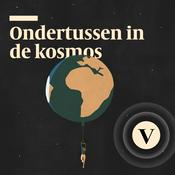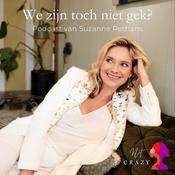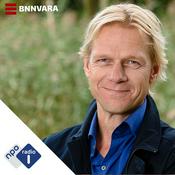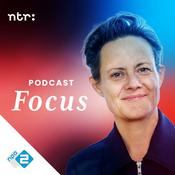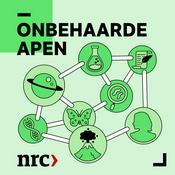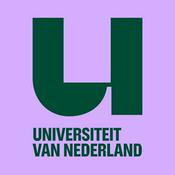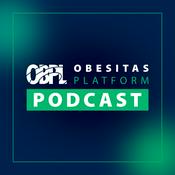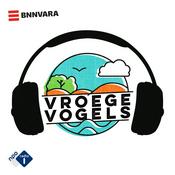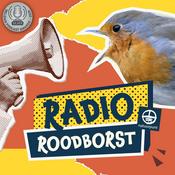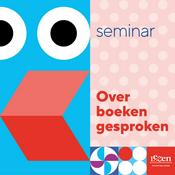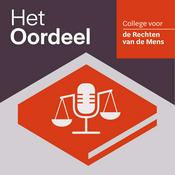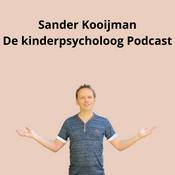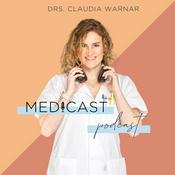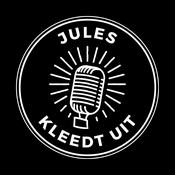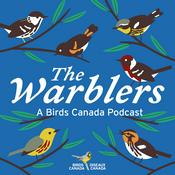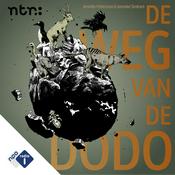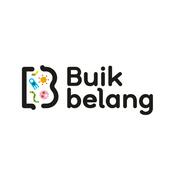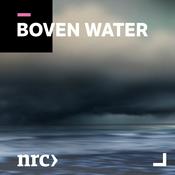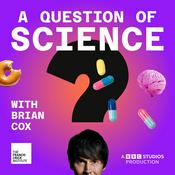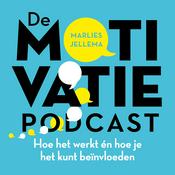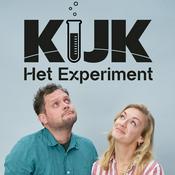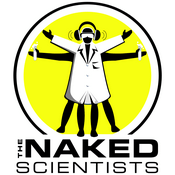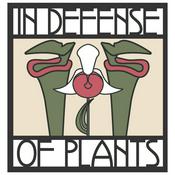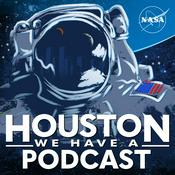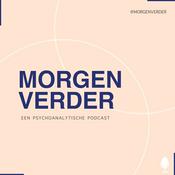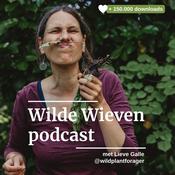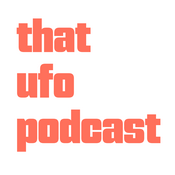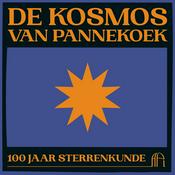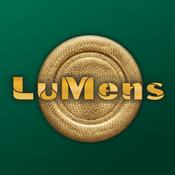89 afleveringen
- For over forty years, Dutch geologist and paleontologist Jan Smit has been at the center of one of the most profound scientific detective stories of our time: the investigation into the mass extinction that ended the reign of the dinosaurs 66 million years ago. Known as the Cretaceous-Paleogene (K-Pg) extinction, this event wiped out nearly 75% of all species on Earth, from towering dinosaurs to microscopic marine life, and cleared the way for the rise of mammals and, eventually, humans.
Early in his career, Jan Smit became intrigued by a thin layer of clay found in rock strata across the globe, precisely at the boundary between Cretaceous and Paleogene sediments. This layer, unusually rich in the rare element iridium, held clues that would eventually transform our understanding of planetary history. Working alongside Luis and Walter Alvarez and others, Jan helped develop the hypothesis that a massive asteroid impact, rather than volcanic activity or gradual climate change, was the primary cause of the extinction.
In this episode, we explore the extraordinary evidence for that theory: global patterns of shocked quartz, tsunami deposits, a massive crater buried beneath the Yucatán Peninsula, and the sudden disappearance of entire ecosystems in the fossil record. Jan walks us through decades of fieldwork and analysis that revealed the incredible violence and planetary consequences of the impact, a blast more powerful than a billion Hiroshima bombs, throwing Earth into a global winter.
But this is more than a forensic tale of catastrophe. It's a window into the fragility and resilience of life, the interconnectedness of geological and biological systems, and the awe-inspiring forces that shape the story of our planet.
Watch on Youtube:
https://youtu.be/YOlOuBYgAmQ Causal Fermion Systems: A Radical New Vision Of Reality | Felix Finster | Escaped Sapiens #84
23-9-2025 | 1 u. 33 Min.For over three decades, Felix Finster has been developing a unique and ambitious reformulation of physics known as Causal Fermion Systems (CFS). Physicists usually describe the world in terms of fields defined on a spacetime manifold. Within this familiar framework, abstract quantities such as correlations between matter fields at different points in spacetime can be computed. In mathematical language, these correlations are captured by operators acting on a Hilbert space.
What Felix realized is that this process can be reversed. If you start with a suitable collection of operators on a Hilbert space, satisfying certain mathematical properties, you can in principle reconstruct the underlying spacetime and fields that would give rise to those operators as operators of correlations.
In this sense, Causal Fermion Systems offers a dual description of reality. On the one hand, reality can be described in terms of symmetries, fields, and manifolds - the usual language of physics. On the other hand, CFS proposes that reality can just as well be described using abstract structures: Hilbert spaces, operators, and measures on sets of operators. Spacetime, matter, and everything we observe then emerges from these underlying mathematical quantities.
The beauty of reformulating physics this way is that it opens up an entirely new framework in which to explore some of the deepest open questions in physics: What is spacetime like at the smallest scales? Why do we see precisely the particles we do in experiments? The hope is that within the CFS framework, answers to such questions might become more natural or even inevitable.
Of course, we can’t cover a 30-year research program in full detail in a single conversation. The goal here is to get a sense of the flavor of Felix’s approach to physics. For the full details, you can explore Felix's books
(e.g. https://www.cambridge.org/core/books/causal-fermion-systems/CCA6DE1E1F4DA3AC0EF6729664A5D5B9 ).
►Watch on YouTube:
https://youtu.be/qQl51qifus0
►Find out more about Felix's work here:
https://www.uni-regensburg.de/mathematik/mathematik-1/startseite/index.html
https://causal-fermion-system.com/Is Aging Treatable? Radical Mouse Experiments Begin | Aubrey de Grey | Escaped Sapiens #83
29-7-2025 | 1 u. 5 Min.Aging has long been treated as inevitable. But what if it’s not? What if aging is, at its core, a problem to be solved? In this episode, I speak with biomedical gerontologist Aubrey de Grey about the most ambitious anti-aging experiment ever conducted on mice. The Robust Mouse Rejuvenation (RMR) study, spearheaded by Aubrey and the Longevity Escape Velocity Foundation, aims to extend both the average and maximum lifespan of mice by at least 12 months—a staggering leap in a species that typically lives around 30 months. We unpack the science behind this bold endeavor: What is aging? Why aim for rejuvenation and damage repair as opposed to slowing down aging? What interventions are being trialed in mice? What are the best achievable results? What does the blueprint for longevity escape velocity look like?
►Watch on YouTube:
https://youtu.be/YiX5GKDtYWY
►Find out more about Aubrey's work here:
https://www.levf.org/team https://www.levf.org/projects/robust-mouse-rejuvenation-study-1/study-updates`Last Unsolved Problem of Classical Physics' | Sasha Migdal | Escaped Sapiens #82
08-6-2025 | 1 u. 36 Min.Richard Feynman once dubbed turbulence “the last unsolved problem of classical physics.” Beyond the Navier–Stokes equations, no comprehensive statistical framework exists to predict how fluids spin, eddy, and cascade energy—whether in galactic jets, ocean currents, or the swirl of your morning coffee. But that might all be changing.
In this episode, I sit down with theoretical physicist Sasha Migdal, who emerged from retirement with a bold, loop‑equation approach to turbulence. His formalism recasts the Navier–Stokes equations as an infinite number of linear, readily solvable equations that track circulation around closed loops in the fluid—offering, for the first time, a tractable statistical framework for chaotic flow.
We chart Sasha’s remarkable journey: from a promising career at the Landau Institute and Russian Space Institutes, where he resisted KGB pressure to compromise his work, to his defection to the United States in the late 1980s. We discuss his time outside of physics, and then delve into his return, and his novel approach to solving Navier–Stokes.
Since we recorded, his theory has advanced rapidly. A rigorous proof now shows that it is the solution
to the Navier–Stokes (NS) loop equation. The theory has also been extended to magnetohydrodynamics and turbulent mixing. Recent large-scale direct numerical simulations (DNS) match the theoretical predictions with even greater accuracy.
►Watch On YouTube:
https://youtu.be/BNORi7mxxzg
►Find out more about Sasha's work here:
https://alexandermigdal.com/
https://sashamigdal.github.io/TurbulenceDuality/index.html
►For a more technical overview of Sasha's work you can check out his recent talk at the IAS:
https://www.youtube.com/watch?v=mgvGA6q7oPYAre We More Divided Now Than Ever? | Sam Richards & Laurie Mulvey | Escaped Sapiens #81
05-5-2025 | 1 u. 41 Min.In this conversation I ask Professors Sam Richards & Laurey Mulvey about some of the most controversial topics concerning race and ethnicity in the US today.
Is White Privilege a useful term that helps build understanding and facilitates conversation, or does it generate social tension and make poor white people feel gaslit? What is DEI, why is it so contentious, and can it be implemented effectively? What makes the N-word and blackface so triggering? Why are US racial social norms so culturally dominant and readily exported?
Sam Richards is a sociologist and Teaching Professor at Penn State and a Distinguished Professor at Konkuk University in Seoul, Korea. He runs SOC119, which is the largest race, ethnicity and cultural relations course in the world. Every Tuesday and Thursday afternoon his class is live streamed to 370,000 subscribers from around the world, and his classes have had over 400 million views. His willingness to challenge orthodox thinking led him to be named one of the “101 Most Dangerous
Professors in America” and together with Laurie Mulvey is one of the “parents of radical empathy.”
Laurie Mulvey is the director and co-founder of the World in Conversation Center for Public Diplomacy at Penn State, which is the largest dialogue center in the United States, hosting more than 17,000 participants each academic year. The Center has worked with the UNDP, UNESCO, and NATO, along with organizations and universities in Afghanistan, Pakistan, Iran, Palestinian Territories, Israel, Kuwait, Qatar, China, Haiti, Saudi Arabia, and twelve nations in the NATO Alliance to host dialogues between people separated by vast distances and borders. Laurie is a master facilitator, focused on moderating beneficial conversations between different groups on some of the most difficult, hot button topics.
►Watch on YouTube:
https://youtu.be/wd2DytWSAYE
►Find out more about Sam's work here:
https://sociology.la.psu.edu/people/sam-richards/
►Find out more about Laurie's work here:
https://sociology.la.psu.edu/people/laurie-mulvey/
These conversations are supported by the Andrea von Braun foundation (http://www.avbstiftung.de/), as an exploration of the rich, exciting, connected, scientifically literate, and (most importantly) sustainable future of humanity. The Andrea von Braun Foundation has provided me with full creative freedom with their support. As such, the views expressed in these episodes are my own and/or those of my guests.
Meer Wetenschap podcasts
Trending Wetenschap -podcasts
Over The Escaped Sapiens Podcast
The Escaped Sapiens Podcast attempts to give an authentic and unedited voice to the researchers and explorers extending the boundaries of what is humanly possible.
Podcast websiteLuister naar The Escaped Sapiens Podcast, Zimmerman en Space en vele andere podcasts van over de hele wereld met de radio.net-app
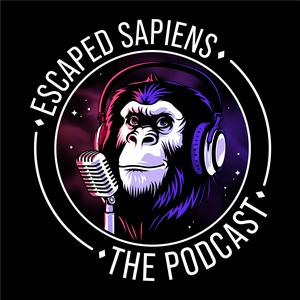
Ontvang de gratis radio.net app
- Zenders en podcasts om te bookmarken
- Streamen via Wi-Fi of Bluetooth
- Ondersteunt Carplay & Android Auto
- Veel andere app-functies
Ontvang de gratis radio.net app
- Zenders en podcasts om te bookmarken
- Streamen via Wi-Fi of Bluetooth
- Ondersteunt Carplay & Android Auto
- Veel andere app-functies


The Escaped Sapiens Podcast
Scan de code,
download de app,
luisteren.
download de app,
luisteren.

